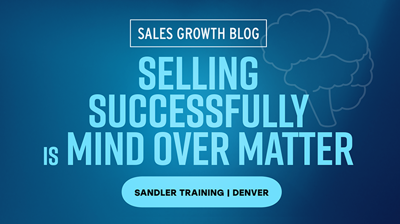Effective sales people find it difficult to pass up a networking event. But all too often, the event you thought was going to be packed with potential referral partners and maybe even a few legitimate prospects turns out to be a roomful of sellers. We’ve all experienced that—it comes with the territory.
All we can try to do is be smart about which events we attend and set the right expectations for our participation. Remember that the goal of networking is to build a network. A network is not a collection of potential customers. And a networking event is not a venue in which you try to sell to everyone in the room.
Networking is building a core group of trusted professionals who are “lead givers,” businesspeople who understand that providing qualified leads is one of the best ways to receive them in return.
"THE GOAL OF NETWORKING IS TO BUILD A NETWORK. A NETWORK IS NOT A COLLECTION OF POTENTIAL CUSTOMERS. "
That is the principle behind membership networking organizations such as BNI, and why they have become so popular. The participants clearly understand the giving and receiving aspects of networking. These groups typically have “protected” industry categories so members are not vying with competitors for the attention and referrals of the other members. The upside of these networking groups is that you can build personal relationships and trust with the other business professionals over time.
There also is a downside to these leads groups. Typically they don’t bring in many new members and therefore can become somewhat stagnant over time. Since they meet on a regular basis, some as often as weekly, they can be quite time-consuming. Finally, given the nature of the membership, the groups are usually better suited for B2C companies than for B2Bs.
Another way to “interview” people for your personal network is through networking events put on by chambers of commerce and other business organizations. These are wonderful opportunities to meet a diverse collection of businesspeople in a short period of time. The key communication skills required for these settings are:
- Starting conversations and “breaking into” a group conversation.
- Shifting conversations to others. State your elevator pitch if asked, but then quickly turn the attention to others.
- Ending conversations. Inevitably you will find yourself talking to someone who is wasting your time.
- Taking things off-line. If someone seems interested in your company, don’t get bogged down in describing your organization’s mission and all the details of your product line. Respect the fact that this event is social as well as business and set a time to meet in the very near future.
If these communication skills do not come naturally to you, take advantage of training opportunities to develop them.
There is a critical difference between business networking and the marketing you do at a specialized industry event where you are rubbing shoulders with lots of potential customers. Clearly you can turn up the sales volume in the latter situation. Both are important elements of building your business.
Chuck Terry, CEO/President
Sandler Training in Denver provides sales training, management and leadership training, and professional development for individuals and organizations. Let us know how we can help your team.







